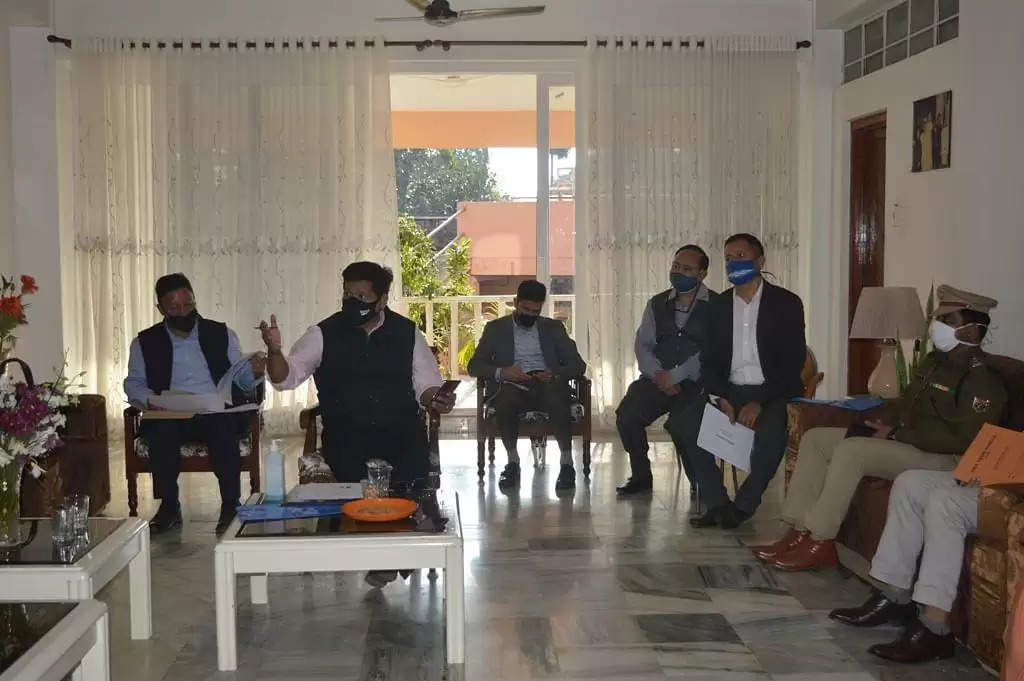Meghalaya CM reviews COVID preparedness in West Garo Hills

TURA
With the recent rise in COVID-19 cases and deaths in West Garo Hills district, Meghalaya Chief Minister Conrad K. Sangma, on Wednesday, reviewed the present situation and preparedness in the district.
During a meeting, Sangma noted the challenges in administering health care services to COVID-19 patients as medical officers informed him about the expected increase in the number of positive cases with the onset of the festival and wedding season.
Others who attended the meeting included the Adviser to the Chief Minister, GoM, Thomas A Sangma, Director, Health Services (MI), Meghalaya, Shillong, Dr. Aman Warr, WGH Deputy Commissioner Ram Singh, Superintendent of Police Dr. M.G.R Kumar, District Medical & Health Officer, Tura, Dr. Marwin Sangma, Tura Civil Hospital Superintendent Dr. Menakshi Sangma and District Surveillance Officer, COVID-19, Dr. Mukrang Terang.
In her address, Dr. Menakshi Sangma informed that there had been 14 deaths in Garo Hills with ten in Tura.
She also spoke about the issue concerning the availability of staff in Tura Civil Hospital.
“After completing their duty, the medical staff would have to undergo quarantine, hence replacing them is the main problem,” she said.
Meanwhile, District Surveillance Officer, COVID-19, West Garo Hills Dr. Mukrang Terang informed that door-to-door surveillance of ILI/Sari Cases, and behavioural change management awareness in coordination with local NGOs is being conducted in various localities.
The Chief Minister also directed the District Administration and concerned medical officers to intensify COVID-19 protocols such as wearing of masks, following social distancing, hand hygiene and to restrict the number of attendees at weddings and other festivities.
Besides this, the Chief Minister informed that the much-awaited COVID-19 vaccine is more likely to arrive in the state by December.
He said that the state government would administer the vaccine in a phased manner and that frontline caregivers would be given top priority in the first phase and individuals who have crossed the age of 50, would be given priority in the second phase.
(Edited by Christopher Gatphoh)

















